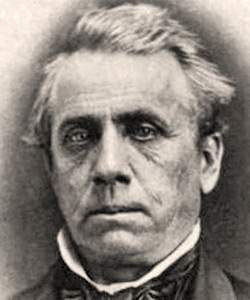Gustave Philipp Koerner (American National Biography)
Scholarship
In 1852 Koerner was elected lieutenant governor of Illinois on the Democratic ticket, serving from January 1853 to January 1857. When Illinois's powerful Democratic senator Stephen A. Douglas introduced the Kansas-Nebraska Act in 1854, which repealed the previous prohibition on slavery in some of the western territories, Koerner was strongly opposed to the measure but hesitated to voice public opposition while still a member of the Democratic state administration. For two years he hoped in vain to turn away the Democratic party from support of Douglas's measure. Only after the national Republican party convention of 1856 did he actively change political allegiance to support the new opposition party and advocate alignment of Germans with it. He chaired the Republican State Convention of 1858, which nominated Abraham Lincoln to oppose Douglas for the U.S. Senate. At the 1860 Republican National Convention, Koerner actively supported Lincoln for the presidential nomination and served on the Platform Committee, which drafted a plank disavowing legislation against the foreign-born.
When the Civil War broke out, Koerner served as an aide with the rank of colonel to General John C. Frémont in Missouri. In June 1862 President Lincoln appointed him to be minister to Spain, replacing his fellow German-American Carl Schurz in that position. His ministry was greatly concerned with the threat of Spanish influence in Santo Domingo and with discouraging trade between Spanish-held Cuba and the Confederacy. Taking a leave of absence to campaign for Lincoln in the 1864 election, he never returned to Spain and submitted his resignation in December 1864.
When the Civil War broke out, Koerner served as an aide with the rank of colonel to General John C. Frémont in Missouri. In June 1862 President Lincoln appointed him to be minister to Spain, replacing his fellow German-American Carl Schurz in that position. His ministry was greatly concerned with the threat of Spanish influence in Santo Domingo and with discouraging trade between Spanish-held Cuba and the Confederacy. Taking a leave of absence to campaign for Lincoln in the 1864 election, he never returned to Spain and submitted his resignation in December 1864.
James M. Bergquist, "Koerner, Gustave Philipp," American National Biography Online, February 2000, http://www.anb.org/articles/04/04-00610.html.



